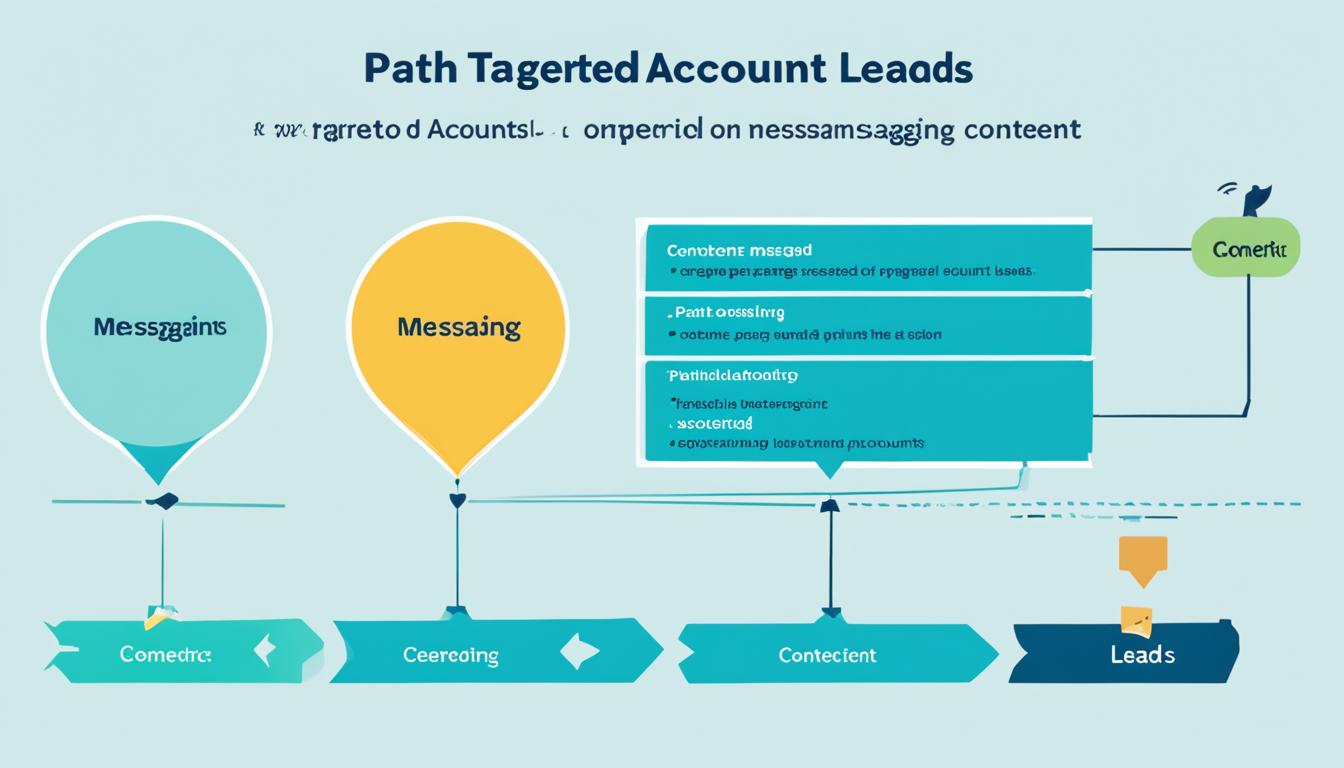The General Data Protection Regulation (GDPR) has changed how we do email marketing. It has rules for handling personal data. It’s important for groups to follow these rules to avoid breaking the law.
Under the GDPR, there are two main times when groups can use personal data for email marketing. If a person says it’s okay, or if the group has a good reason. Before sending marketing emails, groups must get clear permission from people. This permission must be given freely and be clear and specific.
Even if someone is already a customer, they must be allowed to say no to marketing emails. Being open and careful with data is vital in email marketing with the GDPR. Groups should tell people what data they collect and how they use it. They should also keep their privacy policies up-to-date. Respecting privacy helps build trust with subscribers.
Key Takeaways:
- GDPR sets out rules and regulations for processing personal data in email marketing.
- Explicit consent is required from individuals before sending marketing emails.
- Transparency and data protection are essential in email marketing under the GDPR.
- Existing customers have the right to object to the processing of their data.
- Compliance with the GDPR is crucial to avoid fines and damage to reputation.
Consent Requirements under the GDPR
Under the GDPR, organizations need clear consent to send marketing emails. Individuals must actively agree to have their data used for this purpose. Organizations have to meet certain consent rules to follow the GDPR:
- Freely given: Giving consent must be a choice, free from pressure.
- Specific: People need to know exactly how their data will be used.
- Informed: Clear and simple information about data use is required.
- Unambiguous: A clear action, like checking a box, is needed for consent.
To meet the GDPR consent rules, organizations should:
- Use opt-in checkboxes for clear consent.
- Keep evidence of consent to show compliance.
- Allow individuals to easily opt-out anytime.
- Get explicit consent from existing contacts if needed.
Consent for emails should not be tied to service access. Also, people have the right to say no to data use for marketing.
Consent Withdrawal Process
The GDPR lets individuals withdraw consent anytime. To follow this:
- Make withdrawing consent easy and straightforward.
- The withdrawal process should be as easy as giving consent.
- Explain clearly how to withdraw consent.
Following GDPR consent rules shows a commitment to privacy. It builds trust with email subscribers.
| Email Marketing Best Practices under the GDPR | GDPR Email Privacy |
|---|---|
| Get clear consent before sending marketing emails. | Ensure the privacy and protection of personal data in email campaigns. |
| Use opt-in methods and document consent. | Provide ways to opt-out and respect the right to withdraw consent. |
| Keep consent separate from terms and conditions. | Allow objections to data processing for marketing. |
GDPR Compliance for Email Marketing
Following the General Data Protection Regulation (GDPR) is vital in email marketing. Organizations must protect personal data and uphold individual rights. To do this, they should implement data protection actions, conduct data audits, and get clear consent. This way, they reduce risks and follow GDPR rules.
Data Protection Measures
To comply with GDPR in email marketing, emphasizing data protection is key. This means adopting strong security like encryption and access controls. These steps keep personal data safe. They help avoid unauthorized access, data breaches, and breaking GDPR laws.
Data Audits
Running data audits regularly is key for GDPR compliance in email marketing. With audits, organizations can check their data handling methods. They can find any compliance issues or security risks. Fixing these gaps ensures they stick to GDPR rules.
Explicit Consent
GDPR needs clear consent from people. Organizations must make sure their email marketing includes an opt-in process. This process should explain how data is used and let people give informed consent. Keeping records of this consent proves they are following the rules.
| Steps for GDPR Compliance in Email Marketing |
|---|
| Implement data protection measures |
| Conduct regular data audits |
| Obtain explicit consent |
By sticking to these guidelines, organizations show they are serious about GDPR compliance. This protects privacy and rights of people. It also makes sure their marketing efforts are effective.
Best Practices for Email Marketing under the GDPR
To do email marketing right under the GDPR, businesses must stick to key rules. This helps them stay legal and keep their subscribers’ trust. Following these guidelines, they can run effective email campaigns within GDPR rules.
1. Provide an Explicit Opt-In Process
An explicit opt-in is a must under the GDPR for email marketing. People need to say yes to marketing emails actively. Don’t use pre-checked boxes. Make sure people really agree, knowing exactly what they’re signing up for. A clear opt-in shows you’re playing by the rules and respects your subscribers.
2. Separate Consent from Terms and Conditions
Email consent needs to stand apart from other agreements. It should be clear so people know what they’re saying yes to. Keeping consent separate underlines its value, letting people choose knowingly about marketing emails.
3. Simplify Consent Withdrawal
The GDPR gives people the right to stop their consent any time. Make it easy for them to opt-out to show you value their privacy. Every marketing email should have easy-to-find instructions and an unsubscribe link, so subscribers can leave if they choose.
4. Comply with the Soft Opt-In Exception for Existing Customers
The GDPR lets you email current customers with certain conditions. You can do this without asking again if it’s about similar stuff and they could have said no when they first shared their info. But, you must always let them easily opt out of future emails.
5. Avoid Purchasing Marketing Lists
Getting consent directly from people is better than buying lists. Lists you buy may not follow GDPR rules because those people might not have agreed to your emails. Growing your list organically through opt-ins means you reach out to people who are truly interested.
| Best Practices for Email Marketing under the GDPR | |
|---|---|
| Provide an explicit opt-in process | ✔ |
| Separate consent from terms and conditions | ✔ |
| Simplify consent withdrawal | ✔ |
| Comply with the soft opt-in exception for existing customers | ✔ |
| Avoid purchasing marketing lists | ✔ |
Following these best practices aligns with GDPR for email marketing. Getting clear consent, valuing privacy choices, and being transparent lets businesses run good email campaigns. This protects subscribers’ info too.
Consent and Data Profiling under the GDPR
Under the GDPR, it’s very important to get clear consent for email marketing. Companies must handle data based on this consent, making sure they follow the rules. They must also check that the data processors they use do the same. A thorough data audit helps companies stay compliant and manage personal data well.
The GDPR doesn’t just talk about consent’s role. It also shows how consent can make email marketing more successful. By reaching out to people who have given clear consent, campaigns can work better and be more focused.
To better understand consent and data profiling under the GDPR, let’s explore its requirements and advantages:
1. Consent Requirements for Data Profiling
Consent for data profiling under the GDPR must be:
- Freely given: It must be a real choice, without force or incentives.
- Specific: Consent has to be clear for each separate purpose.
- Informed: People should know how their data will be used for profiling.
- Unambiguous: It needs to come from a clear action, like checking a box.
2. Compliance and Data Audits
Running a full data audit is key for GDPR compliance. Regular audits help companies understand how they profile data and where to improve. They also make it clear what personal data is held and why.
3. Improved Engagement and Click-through Rates
Targeting those who have said yes to marketing emails boosts interest and clicks. When people agree to receive emails, they are likely to care about the content. This focused way of marketing leads to more effective campaigns and better results.
Companies need to make sure data profiling is done with clear consent under the GDPR. Following the best practices for consent and data profiling helps stay compliant, improve reader engagement, and make email campaigns more successful.
| Benefits of Compliance with GDPR Consent Requirements | Challenges of Compliance with GDPR Consent Requirements |
|---|---|
| Improved targeting and personalization | Implementing and managing consent mechanisms |
| Enhanced click-through rates | Establishing data audit processes |
| Increased customer trust and loyalty | Responding to data subject access requests |
| Reduced risk of fines and penalties | Ensuring compliance of data processors |
Transparency and Privacy Policies in Email Marketing
Transparency is key in email marketing, especially under the General Data Protection Regulation (GDPR). Companies must be clear about the data they gather and how it’s used. They should also regularly update their privacy policies. This builds trust and shows a commitment to privacy.
It’s important for companies to allow easy opt-outs from email lists. This respects privacy and keeps the user experience positive. It helps maintain a base of loyal subscribers.
Table: Key Elements of Transparency and Privacy Policies in Email Marketing
| Policies | Actions |
|---|---|
| Outline data collection practices | Clearly specify the types of data collected for email marketing purposes and how it will be used. |
| Regular updates to privacy policies | Ensure that privacy policies are regularly reviewed and updated to reflect any changes in data processing practices. |
| Easy opt-out options | Provide clear and straightforward methods for individuals to opt-out of receiving marketing emails. |
| Unsubscribe without negative repercussions | Ensure individuals can unsubscribe from email lists without facing penalties or negative consequences. |
By using these best practices, email marketers can build trust, follow GDPR rules, and keep a good relationship with their audience.
Compliance Benefits and Challenges of the GDPR for Email Marketing
Complying with the GDPR can be tough for companies doing email marketing. But, sticking to these rules brings big pluses. By focusing on people who have said ‘yes’ to messages, companies can see better results in their campaigns.
Benefits of GDPR Compliance for Emails
One big plus of following GDPR for emails is earning trust from people who subscribe. When companies show they care about privacy, they win respect. Giving people control over their info and a choice in receiving emails builds a strong bond.
Also, by getting clear permission, companies reach those truly interested in what they offer. This means emails get read more and lead to more potential customers.
Challenges of GDPR Compliance for Email Marketing
Despite the pluses, meeting GDPR’s rules isn’t easy. A big hurdle is getting clear permission for emails. Companies have to set up ways for people to opt in and be clear about how they’ll use the data.
Keeping track of who has agreed is another issue. Companies must have solid record-keeping to show proof of consent. This takes work.
Plus, companies must keep checking their email methods to stay in line with GDPR. This means regular checks on data use, updating privacy policies, and letting people exercise their rights.
In short, while GDPR for email marketing has its ups and downs, the advantage of reaching people who have agreed is worth it. By matching GDPR standards, companies can gain trust, boost engagement, and keep their email marketing strong.
| Compliance Benefits | Challenges |
|---|---|
| Builds trust with subscribers | Obtaining explicit consent |
| Improves engagement and click-through rates | Ensuring accurate record-keeping |
| Targets an interested and qualified audience | Ongoing review and adaptation |
| Enhances the reputation of the organization | Compliance with strict requirements |
Data Privacy Rules and Consumer Trust
Data privacy rules like the General Data Protection Regulation (GDPR) affect email marketing a lot. By following these rules, companies build trust with their customers. It shows they care about protecting people’s privacy in their email campaigns.
Personalization in communication is critical for earning customer trust. Using subscribers’ data to send tailored messages shows that companies understand and value their customers’ preferences. But, it’s important to collect and use this data right, following GDPR guidelines. This involves getting clear consent from people before using their data.
Being transparent with your subscribers is key to keep their trust. Companies should be open about what data they collect and how they’ll use it. Updating privacy policies regularly and giving clear ways to opt out makes consumers feel respected.
Aligning email marketing with GDPR isn’t just about following laws. It’s about building trust and loyalty with subscribers. Respecting privacy, being clear about data use, and providing valuable content helps companies form strong bonds with their audience. Putting privacy and trust first leads to better email campaigns and business growth.
The Effectiveness of Email Marketing under the GDPR
Complying with the GDPR doesn’t stop email marketing from being effective. By emailing people who said yes to marketing messages, businesses can see better results. They get more opens, clicks, and engagement. The GDPR makes businesses focus on trust and making customers happy, which leads to more successful emails.
To send marketing emails under GDPR, companies need clear permission from people. This means the people have chosen to hear from them, showing they’re interested. By focusing on these interested folks, companies can make emails that matter to their audience.
GDPR-compliant email marketing builds more trust with subscribers. If people agree and know how their info will be used, they’ll likely interact more with the emails. This trust means more people opening emails and clicking through because they like and trust the brand.
Also, taking care of the customer experience is key under the GDPR. Emails should respect privacy and let people easily leave or change their email settings. By making the customer experience great and respecting choices, businesses build a stronger bond with their audience.
Below is a table summarizing the effectiveness of email marketing under the GDPR:
| Benefits of GDPR-Compliant Email Marketing | Challenges of GDPR-Compliant Email Marketing |
|---|---|
|
|
Email marketing can still be very effective with GDPR. When companies focus on engaged people, build trust, take care of customers, and follow data protection rules, they can use email as a powerful tool. It helps with engagement, getting people to buy, and keeping customers for a long time.
The Importance of Compliance in Email Marketing
Following GDPR rules is key for successful email marketing. Not doing so can bring big fines and harm a company’s good name. By doing things right, explaining clearly how you’ll use people’s data, and getting their clear yes, businesses can build trust. This makes sure they keep in line with necessary data protection rules.
Email marketing regulations under GDPR say companies must protect personal data well. This means getting a clear yes from people before sending them marketing emails. The yes must be clear, informed, and easy to prove if asked.
Companies must also make it easy to say no to marketing emails at any time. People should feel free to object to their data being used for marketing. They shouldn’t be punished for unsubscribing from email lists.
Protecting data is a must for staying in line with GDPR. Companies need to keep data safe from unwanted access or loss. They should check regularly to make sure they’re following the rules and find any weak spots in how they protect data.
Following GDPR rules helps companies avoid fines and be seen as trustworthy and ethical. Valuing people’s privacy helps keep subscribers loyal.
With GDPR, people are more aware of their privacy rights. So, it’s important for companies to put compliance first. By doing so, they can stand out by being trusted and making real connections with their audience.
Benefits of Compliance in Email Marketing
Following GDPR rules brings lots of pluses to email marketing. By reaching out to people who have said yes, companies engage a more interested audience. This means more people opening emails, clicking on links, and interacting with the content.
Also, being compliant boosts a company’s online image. Showing that you care about data protection and privacy wins subscribers’ trust. This trust can lead to happier customers, more loyalty, and people spreading good words about the company.
Challenges of Compliance in Email Marketing
While it’s important to follow GDPR, it can be tough. Getting the right consent, protecting data well, and handling no-more-email requests can take a lot of work.
Understanding all the rules, especially what counts as a clear yes, can be hard. Companies need to plan and act carefully to meet GDPR’s strict rules and still send out great emails.
But, the good parts of being compliant are more than the tough parts. By focusing on doing things right and following best practices, companies can handle GDPR’s rules well. This makes their email marketing more effective.
The Importance of Compliance: A Summary
Email marketing rules under GDPR look out for people’s privacy and data. Staying compliant is key for email marketing to do well because ignoring the rules can be very bad for a company.
By doing things the best way, getting a clear yes, keeping data safe, and letting people easily say no, companies can earn subscribers’ trust and keep a good image. Following the rules not only keeps companies out of trouble but also helps them grab the attention of a more interested audience.
Table:
| Benefits of Compliance | Challenges of Compliance |
|---|---|
| Increased engagement and click-through rates | Complexity of understanding and interpreting regulations |
| Enhanced brand image and reputation | Time-consuming implementation of consent and data protection measures |
| Improved customer satisfaction and loyalty | Navigating differences between explicit consent and legitimate interest |
The Future of Email Marketing in a Privacy-Focused World
With stricter data privacy laws, email marketing must focus on user trust and privacy. Businesses must update their approaches to meet new standards and expectations. Transparency, consent, and safeguarding data are key to making email marketing work while respecting privacy.
Email Marketing Strategies for the Future
Here are key steps for email marketing in a world that values privacy:
- Obtain Explicit Consent: Make sure people clearly agree to get marketing emails. Use clear opt-in methods that stand apart from other agreements.
- Enhance Transparency: Tell subscribers what data you collect and how you use it. Update privacy policies regularly to keep people informed.
- Strengthen Data Protection Measures: Put strong security in place to keep personal information safe. Check your data practices often to stay compliant and spot risks.
- Simplify Consent Management: Allow people to easily say no to emails and unsubscribe. Offer straightforward ways to opt out without hassle.
- Focus on Personalization: Use clear consent to customize emails based on what people like. Reaching out to interested folks boosts engagement and clicks.
Adopting these practices helps companies gain trust and keep their email marketing effective. Staying in line with laws like the GDPR matters both for legal reasons and for earning lasting customer loyalty.
The Importance of Adapting to Changing Regulations
Keeping up with changing privacy laws is vital for companies. Following rules like the GDPR helps avoid fines and damage to your reputation. It also shows you value customer privacy.
By updating email tactics based on new laws, companies can still use email well. Focusing on privacy and data safety in emails can make customer relationships stronger. This improves how customers see your brand.
| Benefits | Challenges |
|---|---|
| – Increased email engagement | – Adapting to changing regulations |
| – Higher click-through rates | – Ensuring compliance at all levels |
| – Improved customer trust and loyalty | – Balancing personalization and privacy |
By preparing for these hurdles, businesses can make their email strategies last. Even in a privacy-first world, emails remain a powerful way to reach people.
Conclusion
It’s vital for organizations to apply the General Data Protection Regulation (GDPR) in their email marketing strategies. Getting clear consent and focusing on data protection are must-dos under GDPR. These steps help build trust with subscribers, and keep email campaigns effective.
Following data privacy rules is necessary, not just by law, but for lasting success in email marketing. By keeping to GDPR, firms lay a trust foundation. They can then reach people who really want to hear from them. This boosts email open rates, click-through rates, and engagement overall.
Email marketing’s future is geared towards valuing privacy, with growing regulations and changing consumer expectations. Being open about processes, seeking consent, and protecting user data are keys to adapting and thriving. By staying compliant, firms can keep leveraging email marketing power while respecting subscriber privacy.






